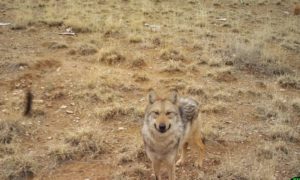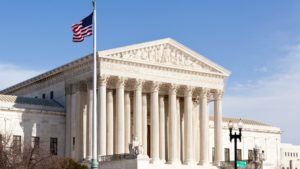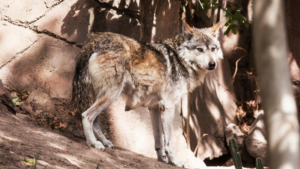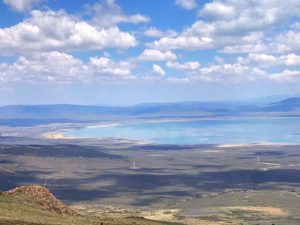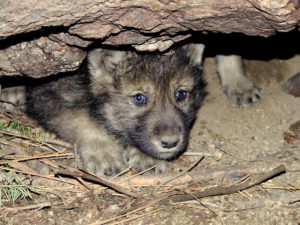|
||
|
The Trump Administration is taking a swing at the regulations that govern grazing on 155 million acres of public lands managed by the Bureau of Land Management (BLM). We are concerned that the new regulations will create such a permissive environment that it is impossible to break the rules — and therefore, impossible for groups like ours to watchdog the impacts of cattle and sheep operations on native plant and animal species. The BLM is currently accepting scoping comments on its proposal, and we need to show them that the public is watching.
The agency is reportedly focusing on changing the following aspects of the grazing regulations:
- Unauthorized grazing – the notice suggests that the BLM should adopt new regulations for informally addressing unauthorized grazing, meaning that instead of complying with existing regulations to document violations and assess penalties, the agency will likely come up with a way of hiding what it knows about grazing trespass or overuse.
- Expediting grazing authorizations as “a tool to reduce wildfire” or to “improve rangeland conditions.” There is no positive correlation in the scientific literature that suggests grazing can achieve either outcome and a large body of evidence to the contrary, but it’s clear that BLM seeks to expedite these types of permits under the guise that it will benefit public lands. In fact, grazing leads to the increase of invasive annual grasses and larger, more frequent wildfires.
- Streamlining protests and appeals – This is likely a reference to a desire by the agencies to reduce timelines for public involvement, increase or codify exhaustion requirements, and to further limit opportunities for the public to be informed and participate.
- Removing the requirement to assess Land Health Standards on every allotment – The regulations say that the new regs will consider “where and how the BLM will evaluate the Land Health Fundamentals and Standards.” The agency is currently required to complete these as part of the permit renewal process. The agency has also been failing to meet Land Health Standards on many, many public lands allotments throughout the west. Instead of meeting the standards, it appears BLM plans to lower the bar of having to meet them.
- Expanding the use of categorical exclusions – i.e. completing fewer full and fair environmental analyses – and undermining public participation opportunities in the process.
Taken together, just these few items in the scoping notice are raising our concerns that we’re going to have to fight to keep grazing permits on public lands in the public sphere of the National Environmental Policy Act.
More information about the proposal (as described by BLM) can be found at this website: https://eplanning.blm.gov/epl-front-office/eplanning/planAndProjectSite.do?methodName=dispatchToPatternPage¤tPageId=200000312
The BLM is taking comments on its proposal to change the grazing regulations now through March 6, 2020.
You can provide your comment online here, or by mail to:
Bureau of Land Management
ATTN: Seth Flanigan
3948 S Development Ave.
Boise, ID 83705
If BLM is going to change the grazing regulations, we suggest they improve them for the benefit of the myriad plants and animals and for non-extractive uses like hiking, ecosystem services, and research. Any new regulations should:
- Create no new categorical exclusions and expand use of EAs and EISs.
- Facilitate greater levels of public engagement, including through posting monitoring reports online for public review, inviting the interested public to attend field visits, and notifying the public of all grazing permit decisions.
- Require grazing management to improve carbon sequestration in soils and analyze grazing in context of the climate crisis.
- Ensure grazing management preserves the habitat value of grazed lands for native plant and wildlife species.
- Ensure grazing management does not impede grazed lands from serving as habitat for native predators.
- Ensure NEPA analyses appropriately considers the habitat of species in crisis and the broader extinction crisis underway.
- Honestly evaluate the contribution of livestock grazing to cheatgrass and accelerated fire cycles and provide more opportunity for the public to evaluate site-specific proposals for fire-related livestock actions.
- Forbid destruction of native vegetation to increase forage for livestock.
- Ensure that the Land Health Standards are evaluated at least once a decade using peer-review scientific and quantifiable methods.
- Include water quality monitoring as part of the land health evaluations.
- Include an accurate and site specific economic analysis of grazing with every permit renewal, revealing the money obtained from grazing fees against the cost of administering the permit.
- Disclose underlying Indigenous land claims and address environmental justice issues.
- Require grazing management to maintain and improve wilderness characteristics and other special values of grazed lands.
- Require use of the best available science in livestock grazing decisions.
- Analyze and adopt a reasonable alternative emphasizing efficiency, public accountability, science, and native species on BLM lands
Feel free to let BLM know all of your best ideas for how they could improve grazing permit administration, all the reasons public lands livestock grazing affects you, and all the ways you want to feel more engaged in their processes.
Please do weigh in! The future of 155 million acres of public lands is at stake!
Contact wwp@westernwatersheds.org with any questions.


